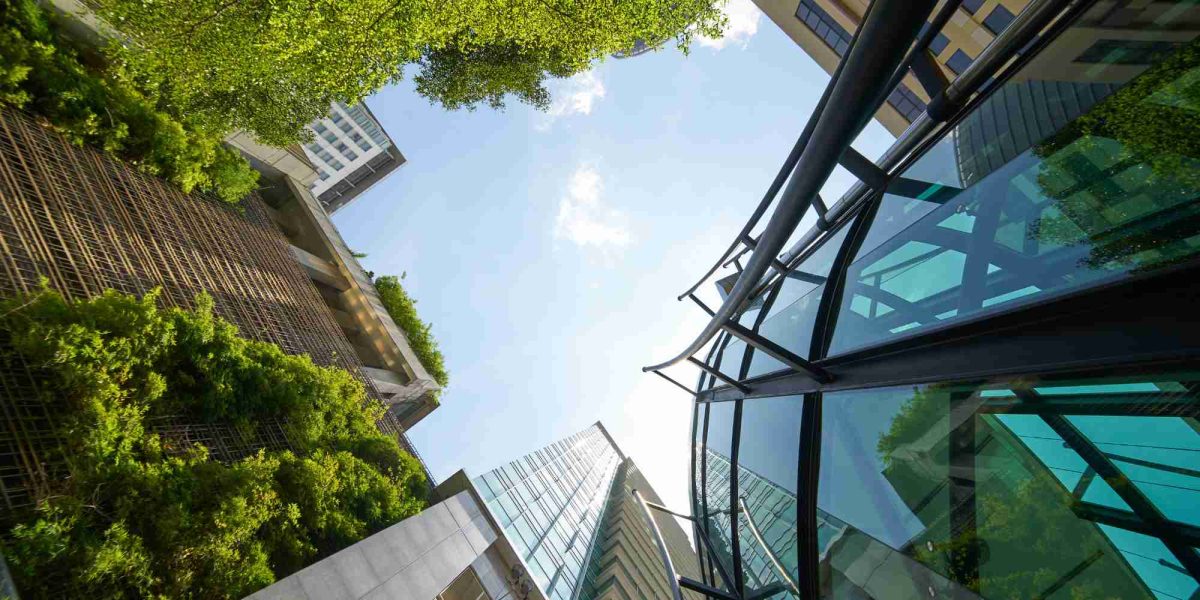Sustainable practices and green initiatives in commercial real estate development in India have gained significant momentum in recent years due to growing environmental concerns, government regulations, and increased awareness among developers and investors. Several key areas are being focused on, including energy-efficient buildings, renewable energy integration, and waste management strategies.
1. Energy-Efficient Buildings
- Energy-efficient building designs are becoming increasingly popular in India’s commercial real estate sector. Developers are incorporating features such as high-performance insulation, efficient HVAC systems, LED lighting, and smart building automation to reduce energy consumption.
- Green building certification programs like LEED (Leadership in Energy and Environmental Design) and GRIHA (Green Rating for Integrated Habitat Assessment) are being adopted to ensure compliance with energy efficiency standards.
- Passive design strategies such as orienting buildings to maximize natural daylight and ventilation are also being implemented to minimize the need for artificial lighting and cooling.
2. Renewable Energy Integration
- With the decreasing cost of renewable energy technologies, such as solar and wind power, developers are increasingly integrating these sources into commercial real estate projects.
- Solar panels are being installed on rooftops and open spaces of commercial buildings to generate clean energy, reducing dependence on grid electricity and lowering operational costs over time.
- Some developers are exploring options for on-site wind turbines or purchasing renewable energy credits to offset carbon emissions associated with their buildings’ operations.
3. Waste Management Strategies
- Effective waste management is essential for sustainable commercial real estate development. Developers are implementing waste segregation systems, composting facilities, and recycling programs to minimize the amount of waste sent to landfills.
- Construction and demolition waste are being managed through practices such as reusing materials, recycling concrete and metal, and minimizing waste generation during the construction phase.
- Some commercial real estate projects are also incorporating innovative waste-to-energy technologies, such as anaerobic digestion or biomass gasification, to convert organic waste into renewable energy and reduce environmental impact.
4. Green Building Materials and Technologies
- Developers are increasingly using eco-friendly building materials such as recycled steel, bamboo, sustainable wood, and low-VOC paints to minimize the environmental footprint of their projects.
- Advanced technologies like green roofs, which reduce heat absorption and provide natural insulation, are being adopted to enhance energy efficiency and improve the urban environment.
- Water-saving fixtures and systems, such as low-flow faucets and rainwater harvesting systems, are being integrated into commercial buildings to conserve water resources and promote sustainable water management practices.
5. Government Incentives and Regulations
- The Indian government has introduced various incentives and regulations to promote sustainable practices in the commercial real estate sector. These include tax benefits, subsidies, and grants for green building certification and renewable energy installations.
- Regulatory frameworks such as the Energy Conservation Building Code (ECBC) and Environmental Impact Assessment (EIA) regulations mandate compliance with energy efficiency and environmental standards for commercial real estate projects.
In summary, sustainable practices and green initiatives in commercial real estate development in India are rapidly evolving, driven by a combination of market demand, regulatory requirements, and environmental stewardship. Developers are increasingly adopting energy-efficient building designs, integrating renewable energy sources, implementing waste management strategies, and leveraging green building materials and technologies to create environmentally responsible and economically viable projects.

